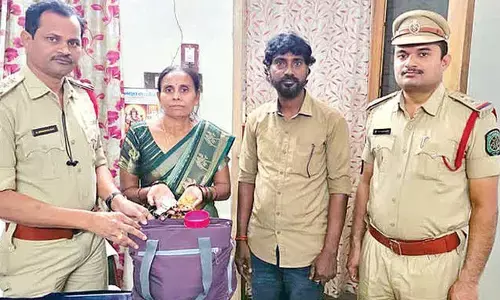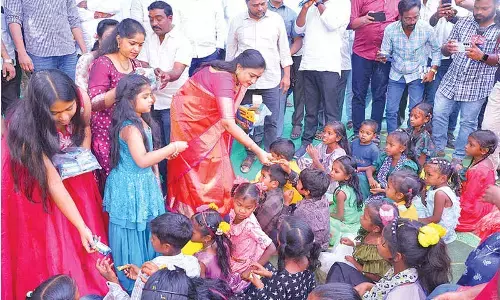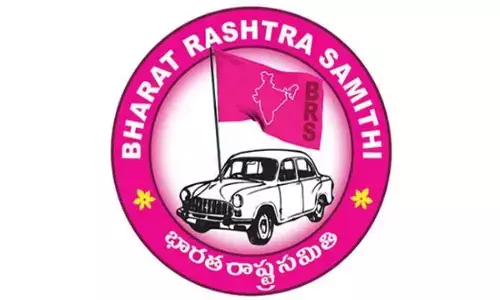Nehru and youth

Children’s Day Special: Jawaharlal Nehru And Youth. It is a measure of the love that Jawaharlal Nehru had for children that his birthday is celebrated as Children’s Day. But what did India’s first Prime Minister think of, and expect from, young men and women? “Youth should not be slaves of tradition but should break the authority of custom, tradition and government,” he declared in a speech at Delhi on February 5, 1929.
But from another remark made during the course of the same speech, it is clear that Nehru had a shrewd suspicion that even the youth might not forever remain imbued with the spirit of sacrifice
.jpg) It is a measure of the love that Jawaharlal Nehru had for children that his birthday is celebrated as Children’s Day. But what did India’s first Prime Minister think of, and expect from, young men and women? “Youth should not be slaves of tradition but should break the authority of custom, tradition and government,” he declared in a speech at Delhi on February 5, 1929.
It is a measure of the love that Jawaharlal Nehru had for children that his birthday is celebrated as Children’s Day. But what did India’s first Prime Minister think of, and expect from, young men and women? “Youth should not be slaves of tradition but should break the authority of custom, tradition and government,” he declared in a speech at Delhi on February 5, 1929.
“The world is moved by ideas. Thought is always greater than armies, more lasting than the most powerful and best organized despotism. Thoughts are more powerful than fighting men, guns and prisons and laws. Their beginnings are feeble but their effect is mighty,” he added. It is unfortunate that most youth even today are “slaves of tradition” lacking guts to “break the authority of custom.” They are, however, ready to break the “authority of government” oblivious of the facts that Nehru advocated defiance of an alien government and today they have their own government.
The tradition whose slaves they are is that of conformism and servility. Most of them adopt the line of least resistance by following Authority. If this is their mental attitude in the plastic years, what will they grow up to be? Yes, socio-economic inequities have definitely crippled their spirit, but the situation was no better at the time Nehru made the above exhortation. In the course of the same speech he said:
“The whole question before the ordinary people is that of bread. Indian youth are so greatly in the grip of unemployment that over 1,000 MAs, graduates and others recently applied for a job of Rs.30.” In a speech at Lahore on February 8, 1929, Nehru said: “Students should not only express enthusiasm but train themselves in such a manner that they might become experts and not mere amateurs. Incompetent amateurs can never hope to achieve anything.”
Today every political party has a “youth wing” which, however, flaps only when the party wakes up to activity. When it does, one sees young men and women marching in a procession, carrying the flags of their respective parties and shouting slogans dictated by their political mentors and learnt by rote, standard-bearers of mock armies.
Perhaps more important was the vision that Nehru had for the youth. That vision translated into formation of Leagues. When communal riots broke out in Mumbai on February 5, 1929, it was not the police but the Bombay Youth League formed and tended by Yusuf Meherally with the blessings of Nehru which restored normalcy.
Since independence India has witnessed many times more riots, should the country revive the Youth Leagues? These Leagues worked for reconciliation between the combating communities, and succeeded. The obvious answer is, of course, yes, but we should first ask ourselves two questions: First, what were the aims and objects of those Leagues? Second, can we get today’s youth to subscribe to them?
Nehru answered the first question in a letter to Bhagwat Dayal Sharma on April 3, 1929: “The principal object of such a League should be self-education by discussions, study circles and by developing contacts with the masses. The members should prepare themselves for future work rather than take up active work before they are clear in their own minds about what to do and how to do it. The preparation may itself involve some active work, but the object should not be so much the work as the training, and the knowledge that the work gives.”
The answer to the second question is implicit in that to the first: “Self-education by discussions and study circles” is not likely to appeal today to youth most of whose parents are rich enough or influential enough to see them settled decently in life without putting them through a stringent mental discipline; and neither the Government nor civil society seems interested in thus harnessing the energies of such youth as are desirous of self-education but lack the means.
It was not for nothing that the one word Nehru kept repeating every time he talked of youth was “training”. But training for what? Obviously for shouldering the responsibilities that freedom was sure to impose; but Nehru wanted such training (by which he evidently meant cultivation of right temperament) to be backed by “expert knowledge.”
But at the same time he could anticipate the degradation that freedom would bring.
In a powerful speech on August 9, 1929, on the “hunger strikers in Lahore jail,” he said: “They are not struggling to get honours from the people or laurels from the crowd for their sacrifice. What a contrast this is to the unfortunate wrangles among Congressmen and the fighting for securing positions in the Congress and the reception committee!”
But from another remark made during the course of the same speech, it is clear that Nehru had a shrewd suspicion that even the youth might not forever remain imbued with the spirit of sacrifice.
“It is the habit of the young to criticize their elders. But this criticism will not have any meaning if young men and women cultivate the same disease of self-advertising and speaking on platforms. Give up cultivating the habit of platform speeches. Speakers there are many, and the habit should be abandoned. Youth should learn the habit of discipline, which is a very necessary element in the attainment of true success.”











